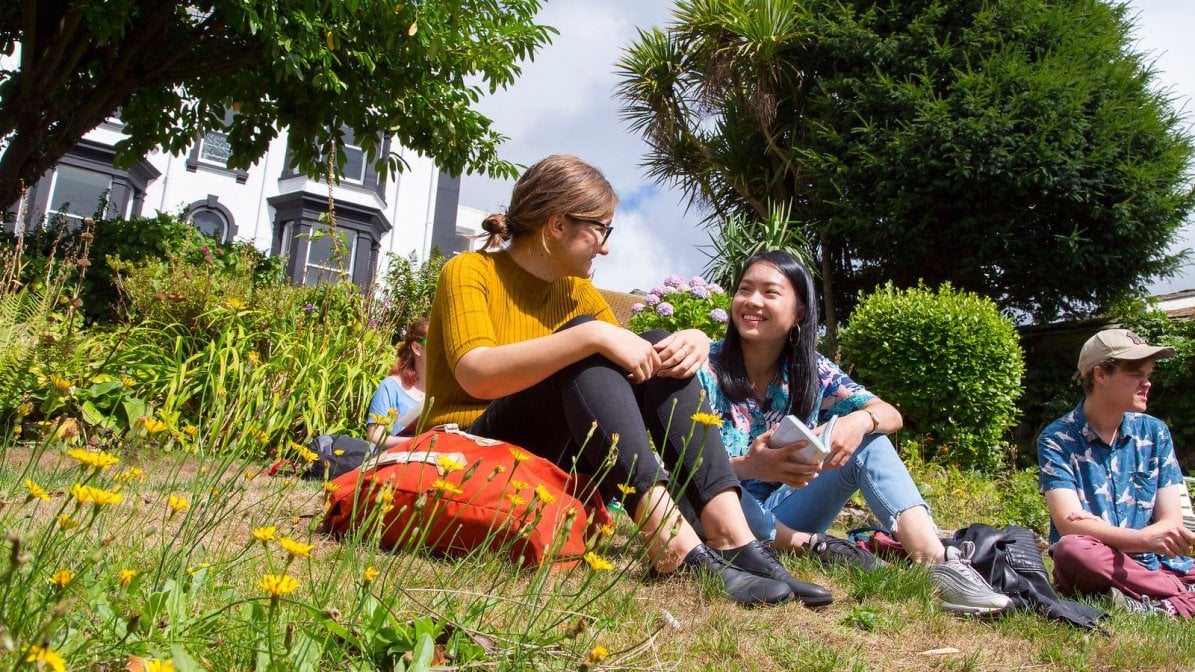Studying teaching is focused on inspiring and guiding young minds. As well as traditional teaching roles, the subject also offers career growth in educational leadership, curriculum development, and specialised fields like educational technology and policy analysis. Aspiring teachers not only gain practical classroom skills but also become advocates for positive change in education. The emphasis on adaptability, interpersonal connections, and leadership in teaching prepares graduates for a fulfilling career where they can shape the future of education.
There are a few routes into teaching, with the most common being undertaking a QTS (qualified teacher status) undergraduate degree, or completing a PGCE (Post Graduate Certificate in Education) teacher training programme after you have completed an undergraduate degree in your chosen subject.
The impact you could make
- Shape the next generation of thinkers, innovators, and leaders
- Inspire students to become active and responsible global citizens
- Instil values of inclusivity and diversity, contributing to the development of a more tolerant and understanding society
What you could study
- Education, values, and society
- Developmental psychology
- Equality and diversity
- Diversity in the classroom
- Meeting children's needs
- Philosophy of education
- Changing behaviours
- Situated communication
Study options
Options to study in this field include:
Chat to a current teaching student
Chat to a current teaching student using UniBuddy.
Some conversation starters for you:
- Ask which modules they really enjoyed.
- Find out how easy it was for them to make friends on their course.
- Do they have any tips on your personal statement?
- Did they do anything to prep for uni before they went?
- Are there books, podcasts or YouTube channels they would recommend?
Example mdule
Example assignment
Subjects it's useful to have studied first
Some teaching courses or apprenticeships will have requirements for previous qualifications in certain subjects.English
Maths
Science
Hard skills you'll develop
- Create structured and engaging lesson plans
- Maintain a positive and organised learning environment
- Behaviour management and conflict resolution
- Teaching methods to accommodate diverse learning styles
Soft skills you'll develop
- Patience
- Creativity
- Time management
- Resilience
Careers: Where it can take you
Find out more about your career prospects from studying teaching. The following information is based on a typical teaching professional role.Available jobs
Average salary
Career options
Education assessment and support services

What is an...outdoor education leader?
The perfect job for a lover of the great outdoors, an outdoor education leader focuses on teaching and exploring nature. They guide students through an unconventional classroom to teach various subjects, using science, environmental studies, and team-building activities. The natural world means lessons aren’t confined to textbooks but instead unfold in the rustling leaves, flowing rivers, and open skies. This teaching job breaks free from traditional classroom constraints, offering students a unique learning experience that connects them with the wonders of the natural world. You can also qualify to be a forest school leader to take your outdoor learning skills further.
Find your ideal career
Take our careers quiz to find your ideal job matched to your personality type.Entry requirements
Find out more about what you'll need to study teaching at university or as an apprenticeship.
Average requirements for undergraduate degrees
Entry requirements differ between university and course, but this should give you a guide to what is usually expected from teaching applicants.
A Levels
Scottish Highers
Vocational

Teaching and education apprenticeships
Check out our industry guide to help you decide if a teaching and education apprenticeship might be right for you.Other subjects you may be interested in
Considering an apprenticeship?
Applying for an apprenticeship is just like applying for a normal job. Here’s what you need to know.-
1
Deadline
Apprenticeships don't follow the same deadlines as applying to uni, the deadline is down to the employer. -
2
Where to apply
You apply directly through the employer. -
3
No limits!
You're not restricted to one apprenticeship application; you can do as many as you like. -
4
Apply to universities and apprenticeships
There's nothing stopping you applying to university through UCAS, while also applying for apprenticeship vacancies. -
5
Find out more
Read our guide to education, teaching, and childcare apprenticeships.

Apprenticeship vacancies
Check out our live vacancies in teaching.80% of students
Explore further
Go deeper into topics around teaching with the following.-
1
Get Into Teaching events
These relaxed and informative events give you the opportunity to get expert advice and talk to teachers and local training providers. -
2
TED Talks from inspiring teachers
A great teacher can change the trajectory of your life. Here you’ll find talks from teachers you'll wish you had. -
3
The Education Hub
Stay up to date with all the current conversations around education in the UK.
Application advice
Whether it's personal statement tips or what to write in a cover letter for an apprenticeship application, our application advice will help you get ahead in your teaching journey.Skills, experiences, and interests to mention
- Do you have any hands-on experience in teaching or tutoring, whether in formal or informal settings?
- What does teaching mean to you and why are you passionate about it? What difference do you think it makes in the world?
- Show your ability to reflect on your teaching and learning experiences, emphasising how reflection contributes to ongoing improvement and professional growth.
- Emphasise your strong interpersonal and communication skills, essential for building positive relationships with students, parents, and colleagues.
- If you can, discuss any innovative teaching methods, projects, or approaches you've explored or implemented, showcasing your creativity and willingness to experiment.


